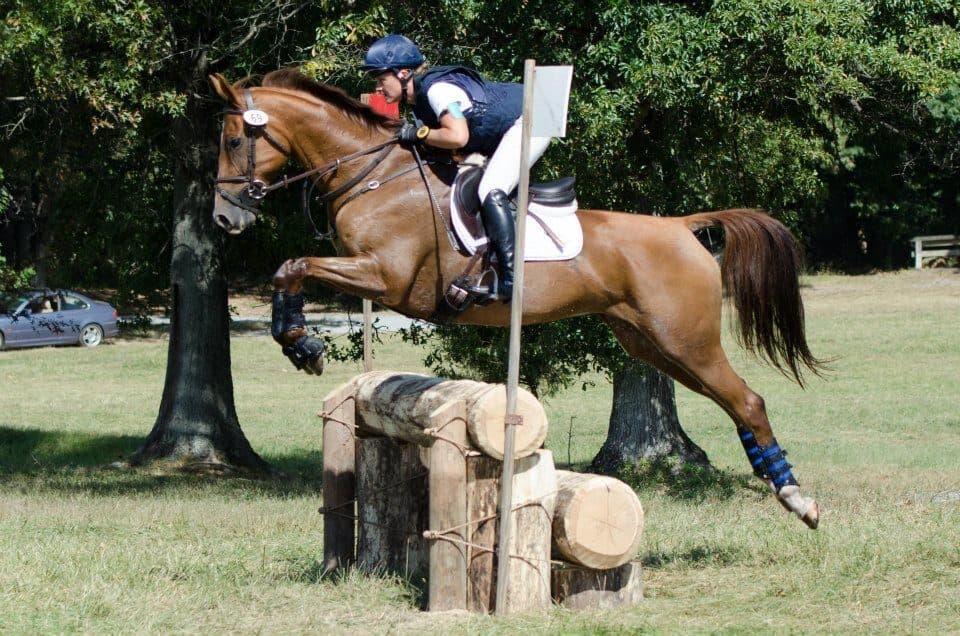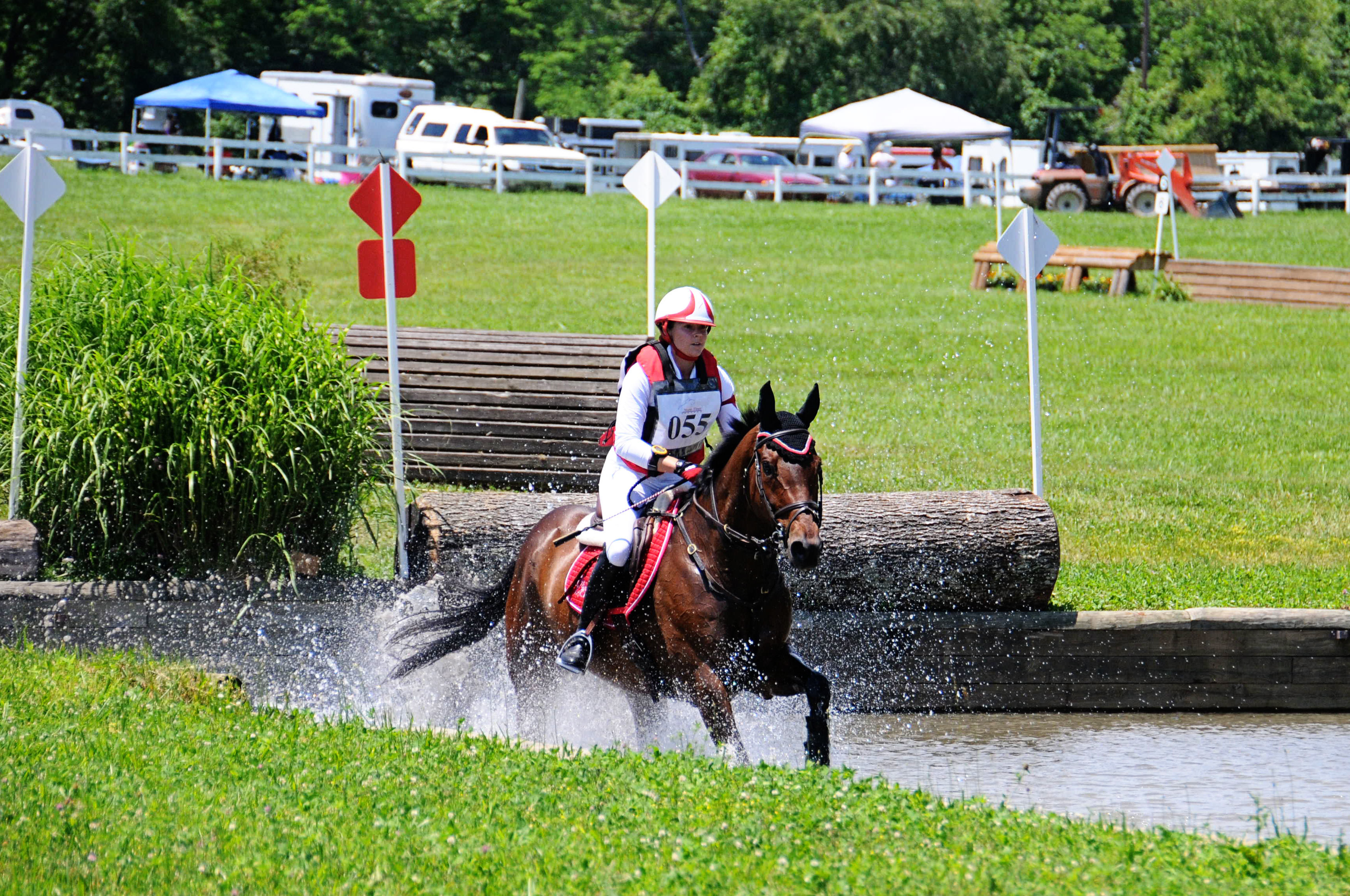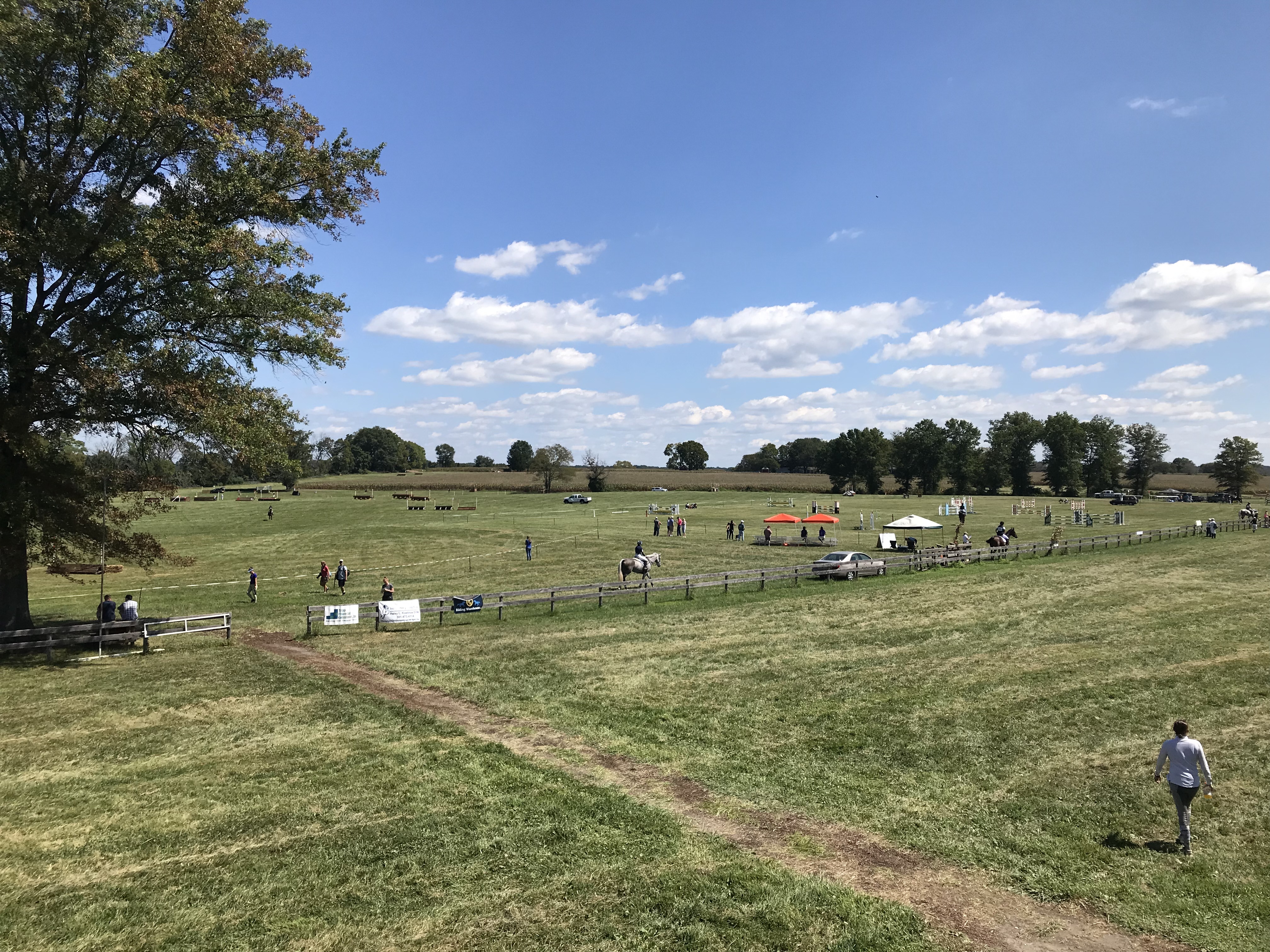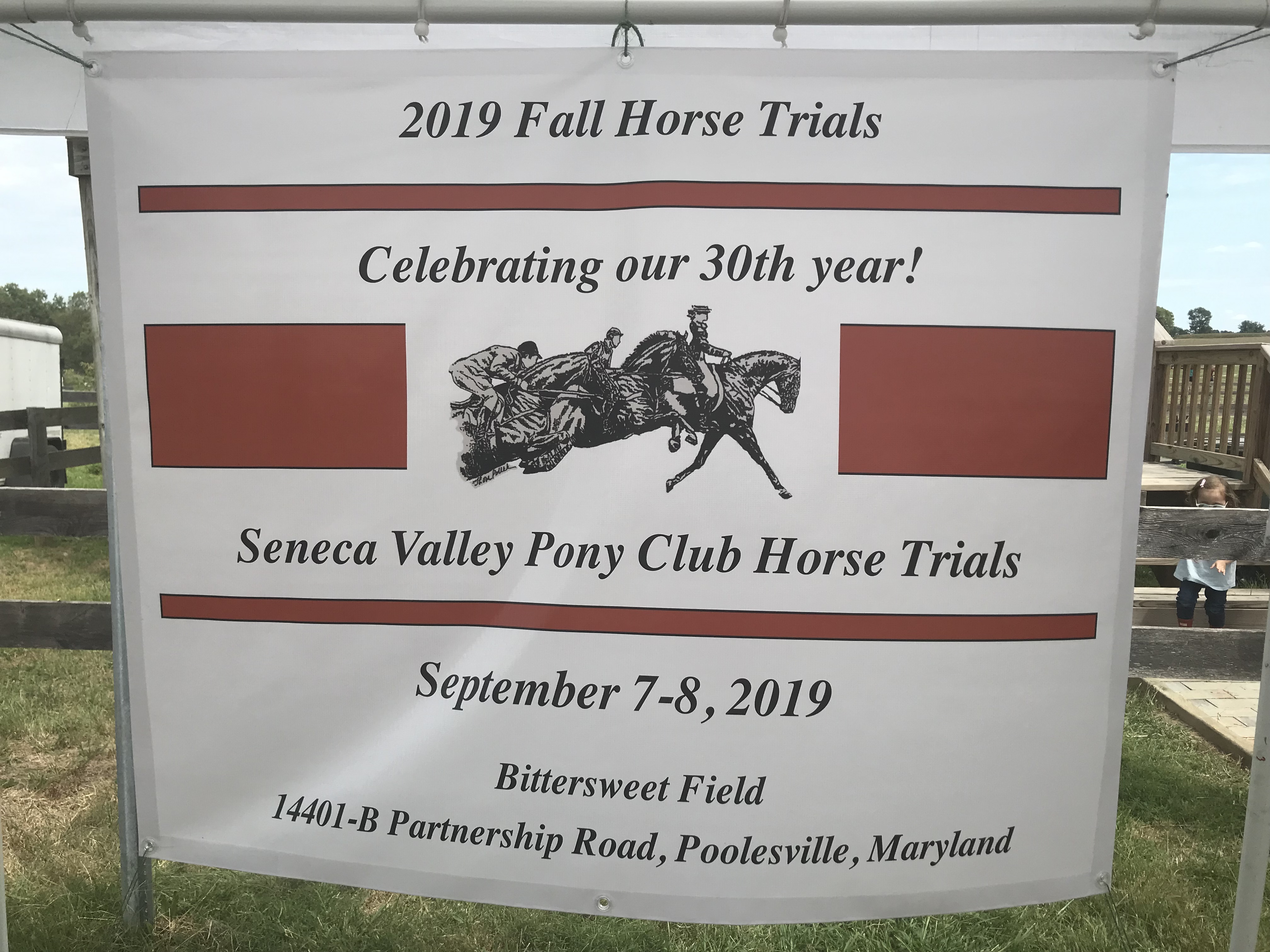USEA Events A-Z: Seneca Valley Pony Club Horse Trials

The Seneca Valley Pony Club hosts two horse trials each year in June and September at Bittersweet Field in Poolesville, Maryland (Area II). In June, they offer Starter through Intermediate levels in addition to USEA Future Event Horse yearling, 2-year-old, 3-year-old, and 4-year-old classes. In the fall they host Starter through Intermediate levels.
Seneca Valley Pony Club (SVPC) was organized in 1961 by Austin Kiplinger and several other families in the northern part of Montgomery County, Maryland (then an exurb of Washington D.C.) to serve local youth, and the Kiplinger family opened their farm, Montevideo, for use by the club members. The club parents constructed a small cross-country course on the property and, over the years, we began running unrecognized events at Bittersweet Field, which derives its name from the bittersweet-orange car Mr. Kiplinger and his wife used to get around the farm.
In 1986, SVPC was given the opportunity to be involved in developing the recognized horse trials at Commonwealth Park in Culpeper, Virginia and from 1986 through 1988, we organized and ran six USCTA-recognized events at that location. In 1987, Mr. Kiplinger made an additional 100 acres available to SVPC and, given our experiences at Commonwealth Park, we began planning courses at Bittersweet. The late, great Roger Haller was our first course designer and laid out the basic flow of the courses. Our first recognized horse trials at Bittersweet was held in the fall of 1989, offering Training and Novice divisions, with Helmut Boehme as Technical Delegate and Suzanne Quarles as Presiding Judge. For several years in the early 2000s, Seneca also hosted the Preliminary DeBroke Championships for East Coast riders.

First and foremost, we could not do this without the constant support of the Kiplinger family and their desire to preserve open space for equestrian use. There have been so many folks over the years who helped grow our competitions: former organizer MaryAnn Scott and her husband, Stuart Scott; Cathy Tucker Slaterbeck; long-time Secretary Kathy Flynn; Nina and Dan Wendling, Jacqueline Heard, and Pam Blumberg, all of whom were instrumental in organizing and expanding the horse trials; former DC Ann Fortier and Mike Fortier, who developed our first automated scoring program; Steve Symansky, who still keeps us on track; Packy McGaughan, who was instrumental in prodding the Club to further develop the courses, to include Preliminary and then Intermediate levels; and of course, course designers Tremaine Cooper and Morgan Rowsell. Plus, my co-organizer Debby Price, who devotes so much time and energy overseeing all aspects of field maintenance and improvements. We also have many former members and their parents and devoted volunteers who keep coming back year after year to help run the event – way too many to name, but we appreciate you so much!
We are extremely lucky to have access to those areas of the Kiplinger farm which are not used for agricultural purposes, so our competitions run on established, fairly undisturbed turf. We do share the field with the Potomac Hunt, which runs yearly steeplechase races on the property. Both clubs expend a lot of effort to maintain the turf in great condition for equestrian use; we aggravate or aerate the courses as needed to ensure good footing. We run Beginner Novice through Intermediate, plus an Elementary (2’3”) division, in both the spring and fall, and this year added a Modified course. We are hoping to undertake some updates to our water complex for next year, as well as add or refurbish several portable obstacles.

I most look forward to the competitors’ smiles as they come off cross-country! And while we all love it when the “big names” participate in our events, I adore watching our members advance through the levels. Over the years, several of our club members have gone on to compete at the highest levels of eventing: graduates Matt Flynn and Lillian Heard are both competing at the five-star level, Katie Wherley, Alex MacLeod, and Tayler Stewart at the two- and three-star level, and current member Ema Klugman at the four-star level. Ema also carries the distinction of having achieved her USPC "A" certifications in eventing, show jumping, and dressage.
We try to run a friendly, fairly low-key event and meet the wishes of our competitors. For example, when Modified was approved, several of our longtime competitors told us they would really like it if we added that level, so we budgeted to add that division. I think competitors would also like to know that their participation really does help to bring along the next generation of equestrians: the horse trials are our major source of revenue and provide our members with free lessons, camp, and Pony Club certifications, as well as subsidized participation in USPC rallies and National Championships. This year, we were able to underwrite our members’ participation in a LandSafe clinic, which we are hoping to continue in the future.

As the Seneca Valley Pony Club Horse Trials has just celebrated our 30th anniversary, I would like to extend a huge thank you to the generations of Seneca members, their families (we have several second-generation Pony Clubbers!) and our incredible volunteer corps for giving up their time to help keep us going and to the competitors for continuing to support us! Thirty years of recognized events at one location is a pretty amazing achievement for a totally volunteer organization like Seneca Valley Pony Club.
The USEA is profiling the history behind all USEA recognized events in the USEA Events A-Z series.















